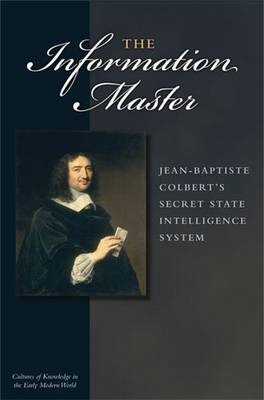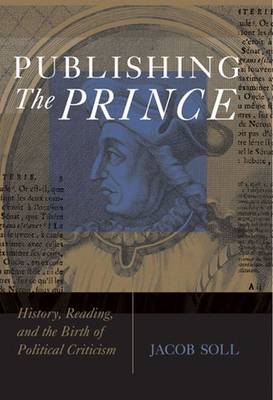Cultures of Knowledge in the Early Modern World
2 total works
This title offers a fascinating inquiry into Jean-Baptiste Colbert's collection of knowledge. Jean-Baptiste Colbert saw governance of the state not as the inherent ability of the king, but as a form of mechanical mastery of subjects such as medieval legal history, physics, navigation, and the price lists of nails, sails, and gunpowder. His actions at the French Royal Library managed to create a revolution in the content of civic learning. In "The Information Master", Jacob Soll explores Colbert's accomplishments, showing how the legacy of Colbert's encyclopedic tradition lies at the very center of the rise of the modern state.Soll's innovative book argues that Colbert's practice of collecting knowledge originated in Renaissance Italy, where merchants recognized the power to be gained from merging scholarship and trade. With his connection of historical literatures - regarding archives, libraries, merchant techniques, and humanist pedagogy - that have usually remained separate, Soll has created an imaginative and refreshing work.
As new ideas arose during the Enlightenment, many political thinkers published their own versions of popular early modern absolutist texts and transformed them into manuals of political resistance. Publishing The Prince traces how, through the works of Tacitus and Machiavelli, humanist reading techniques which sought to discern accurate history, became political tools for monarchs. As Machiavelli illustrated in The Prince, prudence, or reason of state was a critical faculty based on the knowledge of historical precedent. Knowledgeable kings were more effective rulers. Yet critical reading could work both ways, as the public in turn saw into the shadowy methods of monarchs. Indeed, one scholar, Abraham-Nicolas Amelot de La Houssaye, created the most popular version of Machiavelli's The Prince of the late seventeenth and eighteenth centuries with the express goal of transforming Machiavelli's masterwork into a popular tool for monarchical criticism. Through his prefaces and commentaries, and through parallel translations of Tacitus, Venetian historians and the Spanish Jesuit, Baltasar Gracian, Amelot provided a reading apparatus which showed readers how to use Machiavelli as a manual for reason of state of the self. No longer just a book of princely politics, Amelot's version of The Prince became a best selling handbook of self-interest, and radical political subversion. Revising the now orthodox schema of the public sphere in which political authority shifted away from the crown with the rise of bourgeois civil society in the eighteenth century, Soll uses the example of Amelot's editorial strategy for publishing The Prince to show that the very sphere of politicalcriticism and the terms of public debate were absolutist creations, which were in turn appropriated by critics of the crown. Beyond coffee shops and salons, radical philosophy and popular sedition, Soll shows for the first time how the public sphere and the critical world of the Enlightenment in fact grew out of the learned and even royal libraries of erudite scholars, the scholarly practices of Venetian humanists and Spanish Jesuits, and the printing shops of the not-so-polite publicists of the Republic of Letters. Jacob Soll is Assistant Professor of History at Rutgers University.

